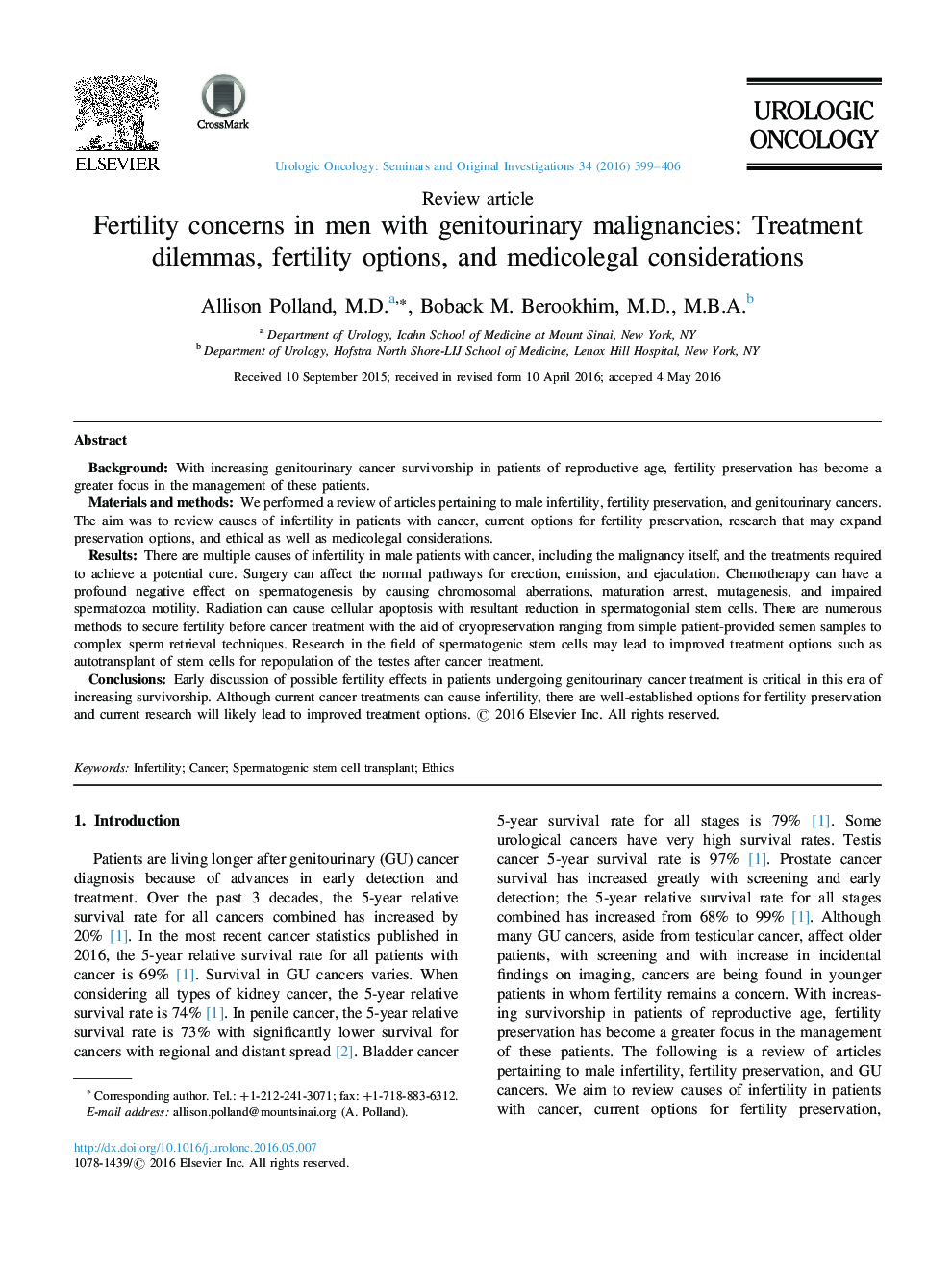| کد مقاله | کد نشریه | سال انتشار | مقاله انگلیسی | نسخه تمام متن |
|---|---|---|---|---|
| 6193897 | 1259331 | 2016 | 8 صفحه PDF | دانلود رایگان |
- Infertility in genitourinary cancers may be due to the cancer or its treatment.
- Surgery can affect the normal pathways for erection, emission, and ejaculation.
- Chemotherapy and radiation can negatively affect spermatogenesis.
- Fertility can be preserved with cryopreservation and sperm retrieval techniques.
- Spermatogenic stem cell research may lead to improved infertility treatment options.
BackgroundWith increasing genitourinary cancer survivorship in patients of reproductive age, fertility preservation has become a greater focus in the management of these patients.Materials and methodsWe performed a review of articles pertaining to male infertility, fertility preservation, and genitourinary cancers. The aim was to review causes of infertility in patients with cancer, current options for fertility preservation, research that may expand preservation options, and ethical as well as medicolegal considerations.ResultsThere are multiple causes of infertility in male patients with cancer, including the malignancy itself, and the treatments required to achieve a potential cure. Surgery can affect the normal pathways for erection, emission, and ejaculation. Chemotherapy can have a profound negative effect on spermatogenesis by causing chromosomal aberrations, maturation arrest, mutagenesis, and impaired spermatozoa motility. Radiation can cause cellular apoptosis with resultant reduction in spermatogonial stem cells. There are numerous methods to secure fertility before cancer treatment with the aid of cryopreservation ranging from simple patient-provided semen samples to complex sperm retrieval techniques. Research in the field of spermatogenic stem cells may lead to improved treatment options such as autotransplant of stem cells for repopulation of the testes after cancer treatment.ConclusionsEarly discussion of possible fertility effects in patients undergoing genitourinary cancer treatment is critical in this era of increasing survivorship. Although current cancer treatments can cause infertility, there are well-established options for fertility preservation and current research will likely lead to improved treatment options.
Journal: Urologic Oncology: Seminars and Original Investigations - Volume 34, Issue 9, September 2016, Pages 399-406
